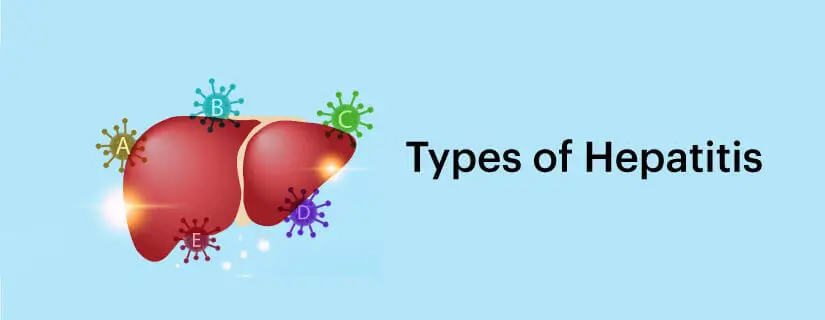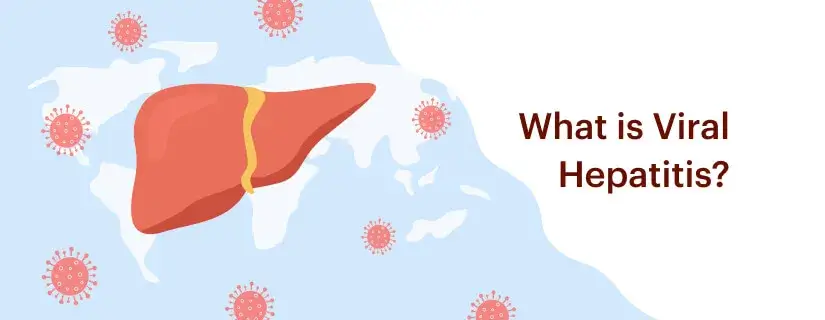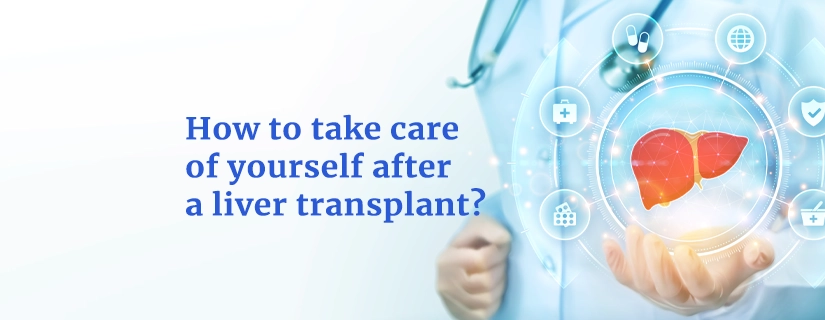-
Doctors
-
Specialities & Treatments
Centre of Excellence
Specialties
Treatments and Procedures
Hospitals & Directions HyderabadCARE Hospitals, Banjara Hills CARE Outpatient Centre, Banjara Hills CARE Hospitals, HITEC City CARE Hospitals, Nampally Gurunanak CARE Hospitals, Musheerabad CARE Hospitals Outpatient Centre, HITEC City CARE Hospitals, Malakpet
HyderabadCARE Hospitals, Banjara Hills CARE Outpatient Centre, Banjara Hills CARE Hospitals, HITEC City CARE Hospitals, Nampally Gurunanak CARE Hospitals, Musheerabad CARE Hospitals Outpatient Centre, HITEC City CARE Hospitals, Malakpet Raipur
Raipur
 Bhubaneswar
Bhubaneswar Visakhapatnam
Visakhapatnam
 Nagpur
Nagpur
 Indore
Indore
 Chh. Sambhajinagar
Chh. SambhajinagarClinics & Medical Centers
Book an AppointmentContact Us
Online Lab Reports
Book an Appointment
Consult Super-Specialist Doctors at CARE Hospitals
Types of Hepatitis
Updated on 21 July 2022

Hepatitis is a condition in which liver cells become inflamed. The inflammation of the liver cells may be caused by different factors such as viruses, alcohol, drugs, chemicals, genetic disorders, and due to overactive immune system. Hepatitis may be acute or chronic depending on the symptoms. There are different types of hepatitis. In this article, we will discuss the common types of hepatitis which are caused by hepatotropic viruses. Mainly there are five types of hepatitis-causing viruses. Hepatitis A, B, and C are the most common types of hepatitis whereas D and E occur rarely.
When one of these viruses enters the body it attacks the cells of the liver and your immune system will try to fight against the virus. The liver cells may become inflamed and if the inflammation lasts for several years it can cause damage to the liver cells. The liver plays an important role in food metabolism and when liver cells get destroyed it is unable to process several nutrients and prevent the body from getting rid of toxins. If proper treatment is not taken for hepatitis in a hepatitis hospital in Hyderabad, it can cause scarring of the liver cells. This will interrupt the normal functioning of the liver.
There are different symptoms of each type of hepatitis and your doctor has to make a unique treatment plan based on your symptoms and the type of virus. These viruses are infectious. Hepatitis A can easily spread from one person to another through contaminated water, food, and skin-to-skin contact with an infected person. Hepatitis B and C mainly spreads through bodily fluids and blood products. Hepatitis viruses can affect people of all age groups and an infected mother can also transmit the virus to the baby during birth.
Hepatitis A
Hepatitis A virus causes hepatitis A. In this type of hepatitis; many people do not experience any symptoms and in some symptoms may appear after many weeks. The infection can easily spread even when symptoms are not present. It mainly spreads through contaminated water and food.
Hepatitis A symptoms could be nausea, loss of appetite, fever, and diarrhoea. Jaundice may occur and skin looks yellowish. Stool becomes light in colour and urine becomes dark. It is an acute inflammation of the liver cells but symptoms may be intense. A person may recover in a few weeks. But, due to low immunity, the person may get a flare-up after a few weeks and feels better after the second infection.
Doctors recommend avoiding eating contaminated food items and drinking contaminated water to prevent hepatitis A.
Hepatitis B
Hepatitis B virus causes hepatitis B. The virus can be transmitted to other people without having any symptoms. The main symptoms of hepatitis B infection include nausea, vomiting, loss of appetite, jaundice, diarrhoea, and pain in the muscles.
The hepatitis B infection may last for a few days or persist as a lifelong infection. Your body can fight against the hepatitis B virus without causing much damage to the liver cells. If it lasts for a longer time it can even lead to chronic hepatitis, liver cirrhosis and liver cancer.
Hepatitis B mainly spreads after coming in contact with the body fluids of an infected person such as semen, blood, blood products or vaginal secretions. The common modes of spread of the infection are the use of infected needles sharing for drug use, getting a tattoo with an infected needle, having unprotected sex, after long-term dialysis, after sharing infected items such as toothbrushes or shaving blades.
Hepatitis C
Hepatitis C virus causes hepatitis C infection. This type of viral infection does not produce any symptoms and an infected person does not know about the infection for many years. A person can live long when infected with the hepatitis C virus. Hepatitis C virus can cause serious damage to the liver even when a person does not experience any symptoms. If treatment is not taken it can lead to scarring and cirrhosis of the liver.
The symptoms of the hepatitis C virus include weakness of muscles, pain in the joints, fatigue, and jaundice.
It can spread by sharing infected needles, having unprotected sex, sharing personal devices such as razors, and toothbrushes, and using an infected needle for skin tattooing.
Hepatitis D
This type of hepatitis occurs rarely and it may occur along with the hepatitis B virus. It causes inflammation of the liver cells and mainly produces symptoms when a person gets infected with the hepatitis B virus.
Hepatitis E
Hepatitis E is caused by the hepatitis E virus. It is a water-borne infection and it mainly occurs in areas where sanitation is not proper. This infection occurs when drinking water gets contaminated with faecal matter. It is an acute infection of the liver and may go away with proper treatment from the best hospital for liver disease in Hyderabad.
Causes of Hepatitis
- Alcoholic Hepatitis: Excessive and chronic alcohol consumption can lead to inflammation of the liver. Alcoholic hepatitis is a progressive condition that can result from long-term alcohol abuse.
- Non-Alcoholic Fatty Liver Disease (NAFLD): This condition is characterized by the accumulation of fat in the liver, not related to alcohol consumption. NAFLD can progress to non-alcoholic steatohepatitis (NASH), which is a more severe form associated with inflammation and liver damage.
- Autoimmune Hepatitis: The immune system mistakenly attacks the liver, leading to inflammation. The exact cause of autoimmune hepatitis is not clear.
- Toxic Hepatitis: Exposure to certain chemicals, drugs, or toxins can cause hepatitis. This can include over-the-counter medications, prescription drugs, or herbal supplements.
- Metabolic Disorders: Some inherited metabolic disorders, such as Wilson's disease and hemochromatosis, can lead to hepatitis.
Common Symptoms of Hepatitis
If you have a long-term type of hepatitis like B or C, you might not notice any problems until your liver is seriously affected. On the other hand, if you get a hepatitis virus and it's more of a short-term thing (acute), you could start feeling sick shortly after.
Here are some signs of infectious hepatitis:
- Feeling really tired
- Having symptoms similar to the flu
- Peeing dark-colored urine
- Having light-colored poop
- Feeling pain in your belly
- Not wanting to eat
- Losing weight without trying
- Seeing yellow color in your skin and eyes (jaundice)
How Hepatitis is Treated?
The treatment for hepatitis depends on the type of hepatitis, its severity, and whether it is acute or chronic. Here is an overview of the common approaches to treating hepatitis:
- Hepatitis A: Hepatitis A is usually a short-term infection, and most people recover without specific treatment. Rest, hydration, and managing symptoms such as nausea and fever are typical recommendations. A hepatitis A vaccine is available and is highly effective for prevention.
- Hepatitis B: Acute hepatitis B may not require specific treatment, but chronic hepatitis B may be managed with antiviral medications. These medications help suppress the virus and reduce the risk of complications. Hepatitis B vaccination is a preventive measure.
- Hepatitis C: Antiviral medications are the primary treatment for hepatitis C. Advances in treatment have led to highly effective direct-acting antiviral (DAA) medications that can cure most cases of chronic hepatitis C. The duration and specific drugs used depend on the genotype of the virus and other individual factors.
- Alcoholic Hepatitis: The most critical aspect of treating alcoholic hepatitis is abstinence from alcohol. Supportive care, including proper nutrition and management of complications, is often provided. In severe cases, hospitalization may be necessary.
- Non-Alcoholic Fatty Liver Disease (NAFLD) and Non-Alcoholic Steatohepatitis (NASH): Lifestyle modifications are crucial for managing NAFLD and NASH. This includes a healthy diet, regular exercise, and weight management. In some cases, medications may be prescribed to address specific aspects of the condition.
- Autoimmune Hepatitis: Immunosuppressive medications, such as corticosteroids and other immunosuppressants, are used to manage autoimmune hepatitis. These drugs help reduce the immune system's attack on the liver.
- Metabolic Disorders: Treatment for metabolic disorders causing hepatitis may involve managing the underlying condition. For example, Wilson's disease may be treated with medications that remove excess copper from the body.
- Regular Monitoring: In many cases, regardless of the type of hepatitis, regular monitoring of liver function and the progression of the disease is essential. This helps healthcare providers adjust treatment as needed and identify any complications early on.
Conclusion
It is important to identify the cause of hepatitis as the best liver doctor in Hyderabad can plan a proper treatment after knowing the cause of hepatitis. Different types of hepatitis are caused by different viruses and may produce different symptoms.

ENQUIRY FORM
SELECT CATEGORIES
-
Neurosciences (16)
-
Neurology (37)
-
Neurosurgery (14)
-
Orthopaedics (48)
-
Oncology (33)
-
Obstetrics and gynecology (52)
-
Pulmonology (23)
-
Urology (20)
-
Nephrology (13)
-
Psychiatry (7)
-
Dietetics and Nutrition (111)
-
General Medicine (63)
-
Cardiac Sciences (32)
-
Vascular & Endovascular Surgery and Interventional Radiology (15)
-
Gastroenterology (46)
-
Endocrinology (23)
-
Plastic Surgery (10)
-
Critical Care Medicine (5)
-
COVID-19 (16)
-
Dermatology (16)
-
Emergency Care (1)
-
Ophthalmology (4)
-
Pediatrics (14)
-
Laparoscopic and Bariatric Surgery (8)
-
ENT (15)
-
Kidney Transplant (1)
-
Liver Transplantation and Hepatobiliary Surgery (5)
-
General Surgery (3)
-
Internal Medicine (5)
-
Medicine Information
Top 5 Liver Diseases and Their Causes
Chronic Liver Disease: Symptoms, Causes and Treatment
YOU MAY ALSO LIKE
RECENT BLOGS
-

Preterm Birth (Premature Birth): Symptoms, Causes, Treatment and Prevention
13 May 2025
Read More
-

Rotablation Angioplasty: Benefits, Treatments, And Recovery Time
9 May 2025
Read More
-

What Is The Difference Between IUI and IVF?
9 May 2025
Read More
-

Venous Malformations: Causes, Symptoms, and Treatment
30 April 2025
Read More
-

Varicose Vein Foam Sclerotherapy: Treatment, Benefits, and Procedure
30 April 2025
Read More
-

Radiofrequency (RF) Ablation Treatment for Varicose Veins: Know More
30 April 2025
Read More
-

Varicose Vein Sclerotherapy: Treatment, Benefits, and Procedure
30 April 2025
Read More
-

Varicose Vein Endovenous Laser Ablation: Procedure, Benefits, Risks
30 April 2025
Read More
Have a Question?
If you cannot find answers to your queries, please fill out the enquiry form or call the number below. We will contact you shortly.



